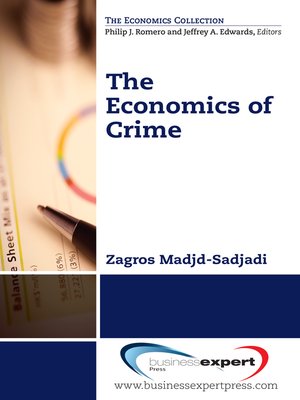
Sign up to save your library
With an OverDrive account, you can save your favorite libraries for at-a-glance information about availability. Find out more about OverDrive accounts.
Find this title in Libby, the library reading app by OverDrive.



Search for a digital library with this title
Title found at these libraries:
| Loading... |
Too often students in economics emerge with a clear grasp of theory, but precious little ability to apply that theory, especially in the area of microeconomics. They are left with a model that they believe is relevant solely to market mechanisms, when it is in fact suited for inquiry into all avenues of rational choice. At the same time, there is a uniform belief that criminals are plagued by psychological, physiological, or sociological deficiencies that can be remedied only through incarceration or institutionalization. Neither formulation is satisfactory as an exemplar to the general population about how they should be thinking about crime.
Workers, employers and managers alike have a stake in effective public policy designed to reduce criminality. According to the Institute for People with Criminal Records, approximately 3% of the US population will be in jail or prison for at least one day during any given year, and nearly 30% of the population has a criminal record. Yet, having a criminal record often serves as a bar to employment and leads individuals who have paid their debts to society on a pathway to recidivism. Thus everyone, from managers in companies considering whether to bar felons from employment to individual voters considering felony disenfranchisement laws, needs to understand how rational criminals act and think. This book will attempt to guide readers to such an understanding. By understanding how incentive mechanisms affect criminal behavior, business managers may use this information either to reduce criminal activity in their own enterprises or to understand how unethical business decisions affect the wider society. As we always do in such circumstances, we must make sacrifices to balance the competing interests.






